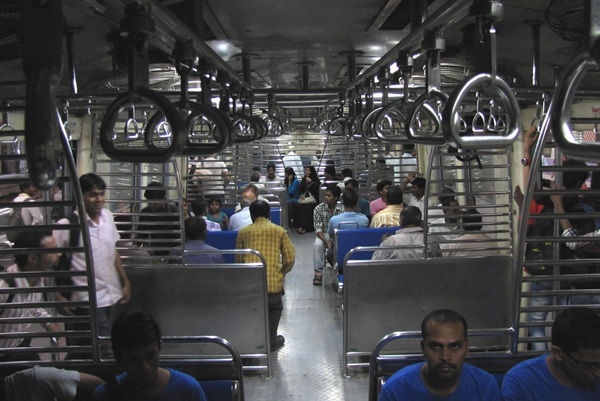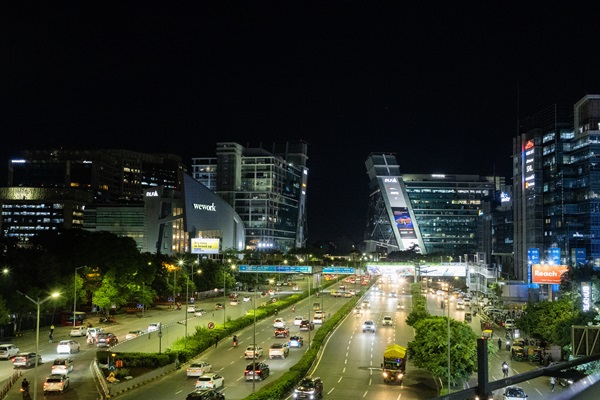.png)
Why Menopause Remains Invisible in India’s Health and Homes
India celebrates motherhood and menstruation with rituals and care, but menopause remains invisible—ignored by health policy, workplaces, and even families.

By Kalyani Srinath
Kalyani Srinath, a food curator at www.sizzlingtastebuds.com, is a curious learner and a keen observer of life.
September 20, 2025 at 1:24 PM IST
In a few days, India will light diyas and chant hymns to the Goddess during Navratri. She
But step outside the temple, and a cruel irony unfolds. Millions of Indian women, who are themselves embodiment of the feminine principle we so loudly exalt, are living through a stage of profound transformation—menopause—with barely a whisper of recognition. The same society that reveres a goddess armed with 10 weapons refuses to equip its women with even one: the dignity of acknowledgement.
Menopause is a biological certainty that signals the end of reproductive years, usually between 45 and 55. Yet in India, this transition passes in silence, often framed as weakness, hysteria, or decline. Rituals mark the onset of menstruation—from Ritushuddhi in Tamil Nadu to Raįo Parba in Odisha—but when a woman experiences her last, there is no conversation, no guidance, and no ritual. Only invisibility.
Vanishing Care
Anjali, a 48-year-old corporate professional in Bangalore, recalls hiding episodes of brain fog from colleagues. Her gynaecologist, overwhelmed with patients, handed her calcium tablets and moved on. Counselling, explanation, reassurance, none offered. In Pune, 50- year-old Kavita was mocked by her family for irritability during sleepless nights. When she suggested consulting a doctor, she was told, “Everyone goes through it, don’t make a fuss.”
Even the medical establishment offers little solace. A 2025 survey of over 500 young Indian obstetricians and gynaecologists found striking gaps in menopause management, with limited understanding of therapies and virtually no training in counselling women through this stage (Gudidevuni et al., 2025). Dedicated menopause clinics exist only in high-end private hospitals in metros like Mumbai and Bangalore, accessible exclusively to the affluent minority. For most women—even in cities—structured menopause counselling remains absent.
This neglect is reinforced at the policy level. Government health programmes pour resources into maternal and child health. Once reproduction ends, so too does systemic attention. Women transitioning to menopause become invisible in the design of public healthcare.
Rural populations fare worst: limited medical access, lower literacy, and poorer nutritional health accelerate premature menopause rates (National Library of Medicine, 2024).
The silence extends into workplaces. While Rhode Island in the US passed a landmark law in 2025 mandating workplace accommodations for menopausal employees— including flexible hours, temperature adjustments, and protection from discrimination— India has not even initiated a conversation. Symptoms are dismissed as bad temper, and professional women conceal their struggles rather than risk being sidelined. This results in women leaving jobs or declining leadership at the peak of their expertise. For an economy that prides itself on progress, the cost is deeply counterproductive.
Menopause Counselling
Why does menopause counselling remain absent? The reasons are intertwined. Culturally, menopause is shrouded in shame and kept invisible. In medical education, it is barely touched upon, left to personal discretion rather than taught systematically. Policy frameworks focus only on fertility and maternal care, sidelining post-reproductive women. Awareness campaigns have successfully championed menstrual hygiene for young girls, but menopause drops off the public radar completely.
The human cost is profound. Symptoms like depression and anxiety affect nearly one in four women globally at this stage (WHO, 2019), yet in India these are brushed aside.
Without counselling, many women believe they’re “losing control,” carrying burdens in silence. Counselling could normalize these experiences, guide management of symptoms, and offer tools ranging from hormone therapies to lifestyle practices such as yoga, meditation, and nutrition. But without systemic frameworks, women are left alone.
Medical Fraternity
For policymakers, there is a lesson to draw from Rhode Island: workplace accommodations are not indulgences but essential frameworks for sustaining women’s economic participation. For workplaces, there is a moral and strategic imperative to retain experienced women by normalising conversations around menopause. And for families, there is an urgent need to speak without shame, to listen without ridicule, to replace dismissal with empathy.
This is not about medicalising midlife so much as about dignifying it. Menopause counselling is not luxury, it is recognition. Recognition that the worth of a woman does
As India prepares to celebrate Navratri, the irony could not be sharper. We will sing praises of the divine feminine while failing, daily, to honour the women who embody her. The truest reverence lies not in chanting hymns but in ensuring that no woman endures her menopause unseen, unheard, unsupported. The goddess deserves temples; women deserve counsel.



